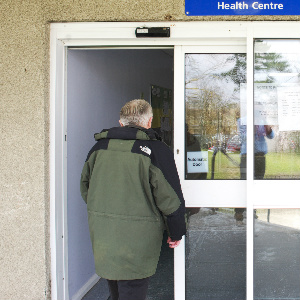Dilemma: Referral management centre introduced

Try to understand your colleagues´ concerns

I would first clarify the ground-rules regarding the referral management centre intervening in referrals without the agreement of the GP. Such services need to be advisory, as their legal right to intervene would not be upheld if challenged. This means the service needs to be a partnership.
I would have a practice meeting to understand the concerns of my colleagues. They may be manifold but the four most likely would be erosion of GP professionalism, delays in the patient accessing care, bounce-back patients creating excessive workload and loss of face with a patient if a referral is rejected. I would channel the discussions to ensure that the focus was patient-centred – what would be good or bad for the patient.
The next step is to meet with my CCG colleagues. I would stress the importance of the CCG remaining true to its concepts of being a membership organization.
We would then agree a resolution strategy. The case would need to be centred on demonstrating the individual patient benefit accruing if referred through the RMC. It would be very powerful to have a surgeon writing that the quickest way on to his hip replacement list, for example, is through the RMC.
I would try to broker a compromise that the service is used on a trial basis for a select number of referrals at first. I would also alert the centre to the importance of being able to demonstrate the ‘added benefit’ to those patients while being sensitive to the concerns of my colleagues.
We will only get resolution through respectful compromise. The worst outcome would the use of the patient as a battleground between clinicians.
Dr Donal Hynes is a GP in Somerset and co-vice-chair at the NHS Alliance.
Ask how patients will be affected

This question encapsulates the twin dilemmas with which GPs deal every day – firstly, the perpetual tension between commissioning and providing and secondly, balancing the needs of an individual patient with those of everyone else.
In a publicly funded health system that is free at the point of delivery, responsibility for the costs of care falls to the commissioners who will obviously wish to do the most good for the greatest number of people.
But medicine is about more than this. The care of each individual is important and indeed, the whole point of GP commissioning is to bring front-line clinicians into the decision making process. In this scenario, both parties have good points to make: the CCG will claim that the referral management centre saves money that can be used elsewhere, while the practice will say that their individual patients are being disadvantaged by the extra bureaucracy.
But if health care is to be about more than money, the debate needs to focus on just how patients will be affected by the change in referral arrangements.
Our GP must therefore put two questions to his or her colleagues. The unhappy partners should be asked to say exactly how the care of their patients has been harmed by the centre, and the CCG asked just what benefits the Centre provides for those referred through it.
Only after these explanations have been considered should the economic argument be put back into the equation. But in the real world it will probably be divisive.
Dr Harry Yoxall is a GP in Taunton and medical secretary of Somerset LMC .
The debate must be founded on good data

It is interesting to note how an outwardly simple change in process can question so many tenets of general practice!
These include the principle of the GP as an independent contractor, a GP’s ultimate responsibility for their patient’s health, the intrusion of management algorithms based on clinical governance/evidence-based medicine and the concept and proportion of clinical practice that is considered an art or a science.
Acceptance of these, as well as many other non-measurable aspects of primary care, tend to vary across the age range of partners – and these opinions need to be explored and distilled prior to presenting a consensus case to the CCG.
However any case presented to the CCG will have more traction if it is based on scientific rather than emotional grounds. As such, the starting point should be data garnered on historic practice referral patterns.
The data can be interrogated relevance and outcomes. Analysis in our practice has previously shown that only a tiny percentage of hospital referrals have been deemed to be inappropriate. Indeed most referrals tended to fall into the inevitable surgery or specialist investigations category.
Armed with the credibility offered by such data I would need assurances from the CCG that any suggested new referrals pathway would include individual assessment, on clinical grounds, without thought to cost, with a right of appeal and with the final decision left with the referring doctor.
I would stress the principle that a GP’s primary duty is as a doctor is to his or her patient and no one else. As such, the buck stops with the patient’s named GP.
Dr Jim Sherifi is a GP in East Bergholt, Suffolk.









